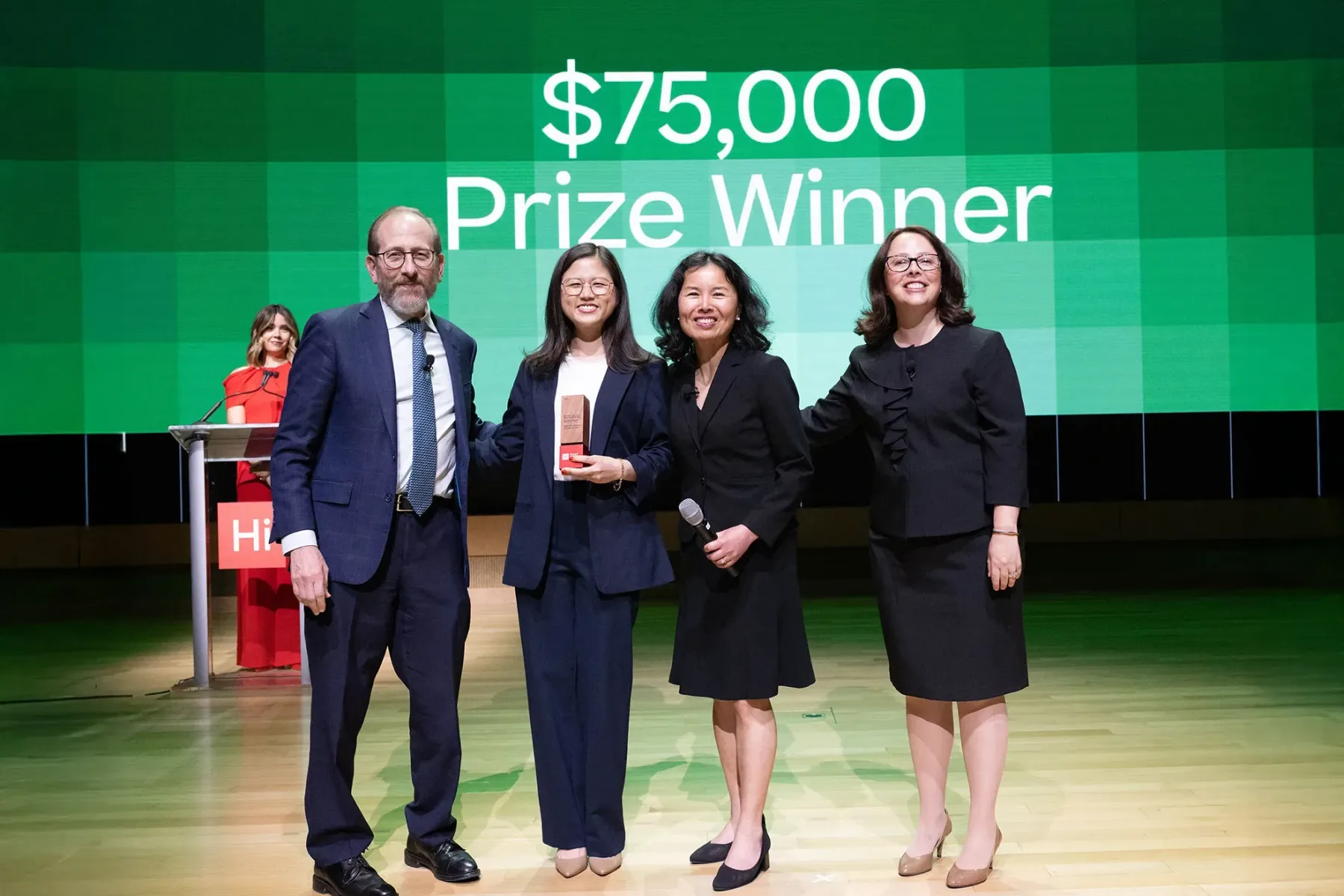Later this month, the Harvard Innovation Labs will be opening its AR/VR Studio.
In a nod to Harvard’s history in shaping the augmented, mixed, and virtual reality spaces, the studio will bear the name of former Harvard computer science professor Ivan Sutherland, regarded as the creator of the ‘Sword of Damocles,’ the first head-mounted virtual reality device.
The launch of the studio is the next phase of this innovation story.
Augmented and virtual reality weren't always at the top of our priority list at the i-lab, which has been supporting early-stage ventures in the life sciences, technology, education, hardware, and many other fields since opening in 2011. However, over the course of a few years the i-lab has seen more and more Harvard-based startups seeking to leverage this frontier technology in new and unique ways.
We had so many entrepreneurs and innovative thinkers asking for resources to support AR/VR startups, that we have made a dedicated effort to make these augmented, mixed, and virtual reality entrepreneurs feel at home at the i-lab. As we seek to continue to provide resources to i-lab entrepreneurs and innovators to help them get “further, faster,” we decided to embark upon this lofty initiative.
We also saw how this new platform and technologies can have impact on so many different industries including education, architecture, sports, and medicine, to name a few.
To kick off this initiative, we welcomed more than 1,300 AR/VR thought leaders and enthusiasts to the i-lab last fall for our AR/VR symposium, a part of the 2016 HUBweek festival. The overwhelming enthusiasm from the community confirmed our growing belief that Harvard has the chance to be a major player in the expansion of AR/VR as a platform. The event introduced us to hundreds of people in the Harvard community who are trying to leverage these technologies.
So we had to do something more.
We are opening the AR/VR studio inside the i-lab this month to further the growth of the ventures being built at Harvard using inspiring AR, MR, and VR tech.
We’ve learned so much about the space in a very short period of time, which has informed the types of resources that we're offering.
First and foremost, the AR/VR Studio is platform agnostic. We aren’t picking winners because there are so many fantastic options for software and hardware. With the studio, we want to give student innovators as broad a playground as possible to experiment. While a different model for building an AR/VR lab may be less inclusive, we feel it is more suitable to offer a wide spectrum of options for Harvard students.
Moreover, we wanted to create a space in which innovators and entrepreneurs can feel comfortable creating projects in multiple areas of interest. Given the diversity of Harvard student’s backgrounds, skills, and interests, we think Harvard is well positioned to be a leader in this growing industry. The AR/VR space, as it is currently constituted, is ripe for education and entertainment to be more tightly entwined. It really took a monumental effort, but we have figured out how to bring this wide array of potential use cases together in one space.
Quite simply, the tools and skills needed to develop a VR game or enchanting mixed reality technology are quite different from those necessary to create immersive virtual experiences and lifelike augmented reality. We think with this AR/VR studio, we can support everyone.
And while augmented, mixed, and virtual reality haven’t achieved pervasive usage yet, we don’t think it will be long before more of the population is clamoring for these technologies.
If we can help those inspiring visionaries build the potentially problem solving experience of the future, we think we can help change the world.





